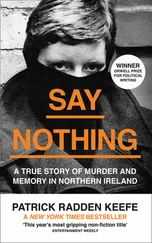Doesticks Q. K. Philander
Nothing to Say / A Slight Slap at Mobocratic Snobbery, Which Has 'Nothing to Do' with 'Nothing to Wear'
I, Q. K. P. Doesticks, of No Hall, Nowhere;
No Castle, no Villa, no Place, Court, or Terrace;
Who didn’t write “Junius,” or “Nothing to Wear,”
Who never have visited London or Paris;
Who am not a phantom, a myth, or a mystery,
But a “homo,” as solid as any of history;
As real as Antony, Cæsar, or Brutus, —
A wide-awake Yankee, so “tarnation ’cute” as
To always write Nothings, while Nothings will pay,
Am the author of this Nothing – Nothing to Say.
I mention this fact in advance, that Miss P***
May not strive to embezzle the laurels from me.
That her Reverend friend may attend to his Litany,
And leave me my fame, if perchance I shall get any.
I deemed it best, to set at rest,
This question before it was started, lest
Some terrible girl from the far coun tree ,
Without proper regard to veraci tee ,
Should haste to town, to drag me down
From my envied post of poetic renown.
Miss P***, I’ve a favor to ask. – If ’tis true,
That “Nothing to Wear,” and “Nothing to Do,”
And “Nothing to Eat,” were all written by you, —
Let those three Nothings content you I pray,
Say nothing yourself; leave me “Nothing to Say.”
From time immemorial, people of fashion
Have been the target of poets and penny wits,
And been lampooned without stint or compassion,
From Dan to Beersheba – from Dublin to Dennevitz;
And our now-a-day rhymsters, taking the cue,
Have aimed all their shots at the Fifth Avenue,
Till the clever author of “Nothing to Wear,”
Fired his broadside at Madison Square.
Now I don’t consider this sort of thing personal,
I’m not a bit of a dandy or fop;
But the seed it is constantly sowing, is worse than all
Others, and bears a most plentiful crop;
For it all goes to strengthen the popular fallacy
That, because a man lives in a “brown stone palace” he
Must be a miser, a rogue and a knave,
Without soul enough to condemn or to save —
That a broadcloth coat argues sin, if not felony;
If a man has the tact in the world to get well on, he
Cannot be else than a thorough-paced scamp;
That the “villanous rich” wear a cloak and a mask, all,
And the greater the riches, the greater the rascal.
That the cardinal virtues only endure,
In the atmosphere with the “virtuous poor;”
That nowhere are found the true Christian graces,
Save closely allied to the dirtiest faces.
I shall not contradict this delightful tradition,
But beg – No, I won’t, I will take it – permission,
To state, that I think there’s a word to be said,
From a different text, on the opposite head.
And so I’ll invent, as well as I’m able,
A new home-made, allegorical fable;
And my honest purpose shall be, to see
If the scoundrel rich have not borne a part
In those noble charities, which are
The pride of this jolly old city’s heart.
And if I shall find that the virtuous mob
Have ever been known one farthing to pay,
Without hoping a hundred-fold profit to make:
Where the “rich man,” the “miser,” “aristocrat,” “snob,”
Has poured out his thousands for Charity’s sake,
I’ll lay down my pen, and have “Nothing to Say.”
I shall not describe the Spirit of Cant,
Of popular humbug, and vulgar rant,
And tell how he looks in a tangible form,
And give the length of his horns and claws,
The spread of his wings, the width of his jaws,
And detail the other proportions grim,
Which belong to a powerful demon like him.
Go and look at the melodramatic stage,
When a “spectacle” piece is all the rage;
Конец ознакомительного фрагмента.
Текст предоставлен ООО «ЛитРес».
Прочитайте эту книгу целиком, купив полную легальную версию на ЛитРес.
Безопасно оплатить книгу можно банковской картой Visa, MasterCard, Maestro, со счета мобильного телефона, с платежного терминала, в салоне МТС или Связной, через PayPal, WebMoney, Яндекс.Деньги, QIWI Кошелек, бонусными картами или другим удобным Вам способом.












![Helen Rowland - The Widow [To Say Nothing of the Man]](/books/752764/helen-rowland-the-widow-to-say-nothing-of-the-man-thumb.webp)